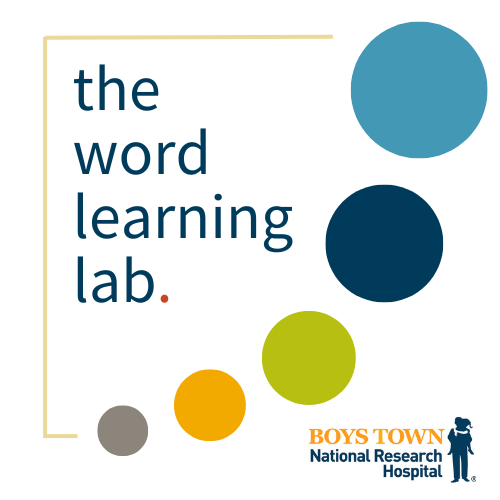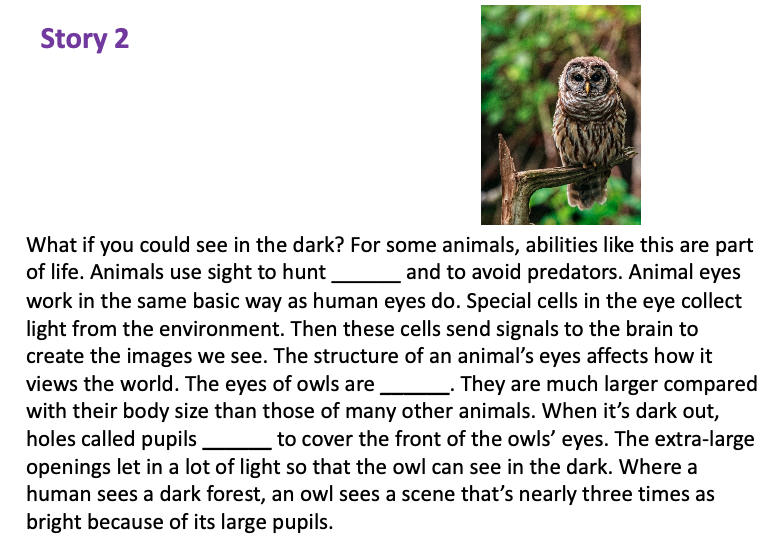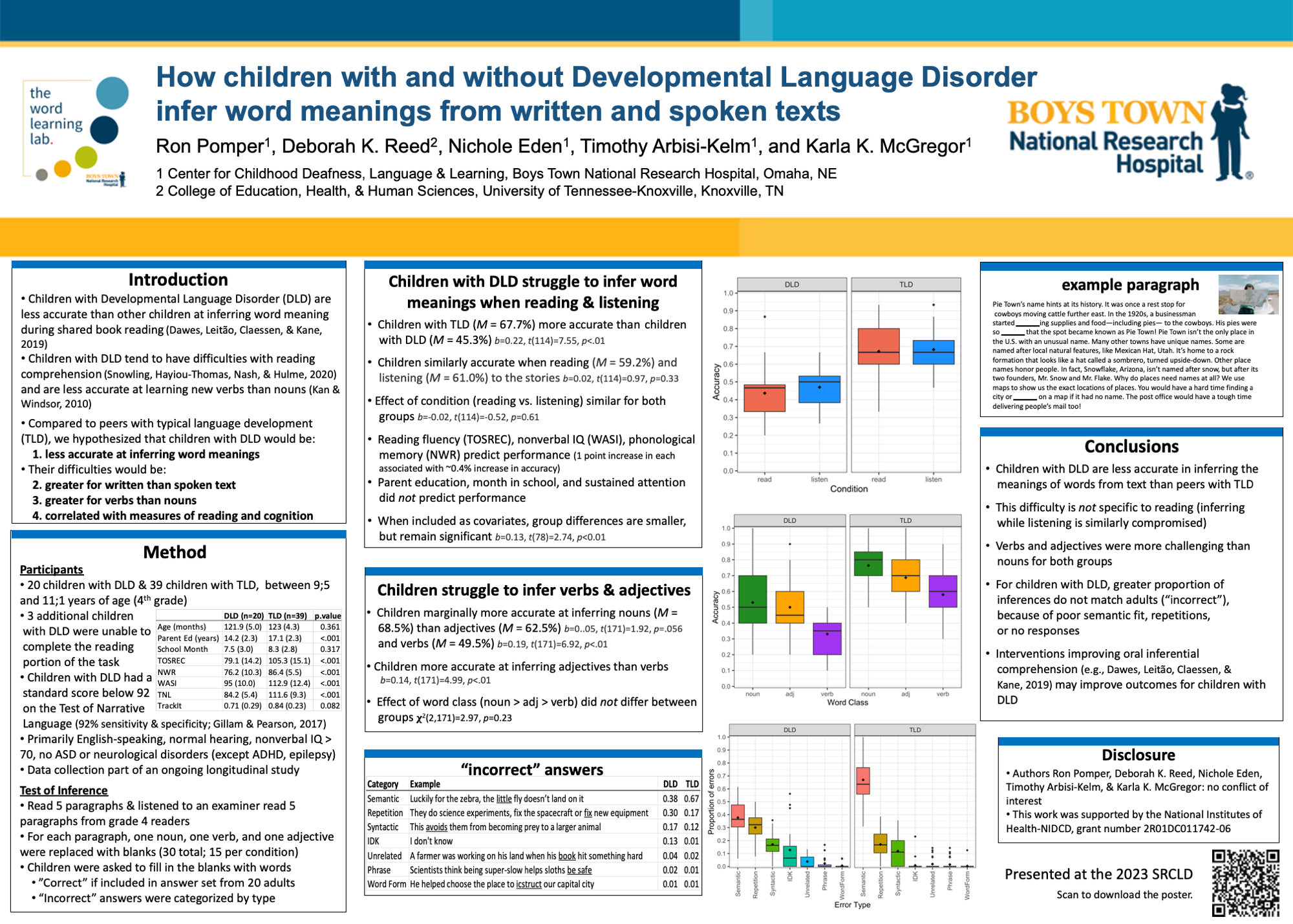Infer
Inferring word meaning from text
This project is part of the Children’s Vocabulary Project in the Word Learning Lab at Boys Town National Research Hospital. The Children’s Vocabulary Project is a longitudinal project funded by the NIH that aims to establish a developmental trajectory of word learning for children with DLD and the underlying cognitive mechanisms.

What we did
How do children infer the meanings of words?
When we encounter an unfamiliar word, we often use context (the other words in the sentence & paragraph) to infer its meaning. Children with Developmental Language Disorder (DLD) struggle to learn new words. In this project, we compared how well children with and without DLD infer the meanings of words while reading and listening to short paragraphs.
To do this, we selected texts from grade-appropriate readers. From each text, we replaced one noun, one adjective, and one verb with blanks. We then asked 9- to 11-year-old children with and without DLD to guess the word that best fit in each blank.

Click here for the full set of stories included in the experiment.
Children's guesses were scored as correct if they matched any of the words included in a set of 20 adults' responses. "Incorrect" guesses, those that were not include, in the adults' responses fell into several different categories:
- Semantic: although technically true, the word is too generic or vauge
- Repetition: repeat of a word from the paragraph/sentence
- Syntactic: sentence is not grammatically correct
- IDK: "I don't know" or did not respond
- Unrelated: does not fit the theme of the paragraph/sentence
- Phrase: a multi-word answer (instructed to provide one word)
- Word Form: a made-up word (often resembling a real word)
What we learned
- Children with DLD are less accurate at guessing the missing words
- This difficulty is _not_ specific to reading (inferring while listening is similarly compromised)
- Nouns are easier than verbs and adjectives for children with and witout DLD
- For children with DLD, a greater proportion of "incorrect" guesses were due to poor semantic fit, repetitions, or IDK responses
SRCLD
We presented this research at the 2023 Symposium on Research in Child Language Disorders:

Click here for the full list of references for our poster.
Citation: Pomper, R., Reed, D. K., Eden, N., Arbisi-Kelm, T., & McGregor, K. K. (2023, June). How children with and without Developmental Language Disorder infer word meaning from written and spoken text. Poster presented at the Symposium for Research on Child Language Disorders, Madison, WI.
Why it matters
Word learning occurs across many contexts and is critical to academic, social, and professional success.
To help them learn new words, children with DLD not only need help with reading but also support for understanding and using spoken language.
This project suggests that interventions improving oral inferential comprehension may improve outcomes for children with DLD in both reading and listening contexts.
Click here to download a pdf summary of this project.